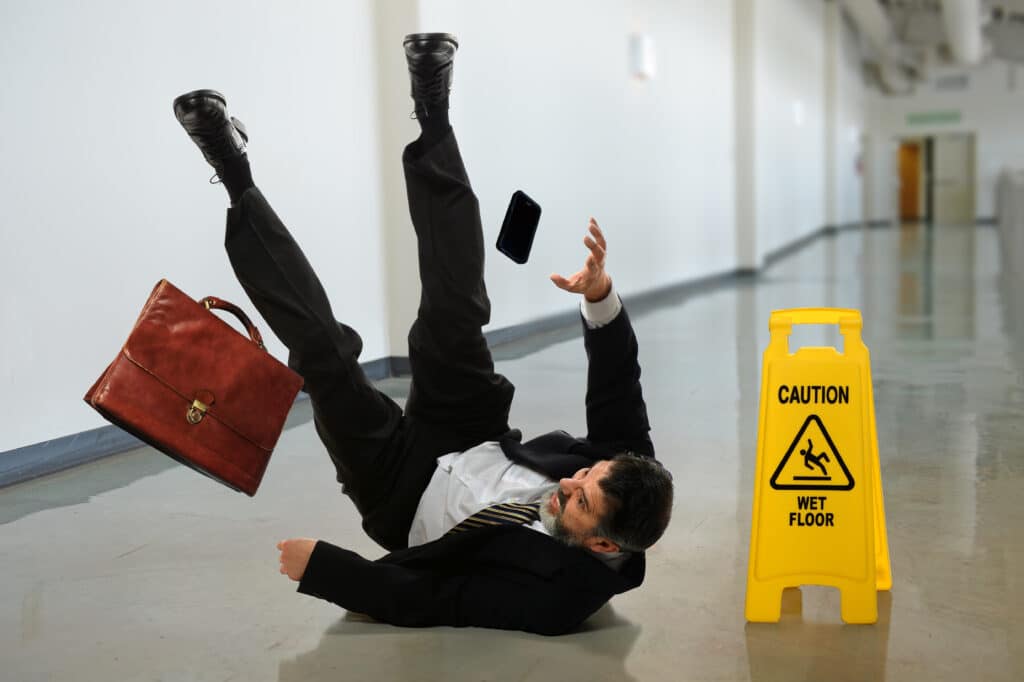Slip And Fall

“Slip and fall” is a term for personal injury cases which arise when injury is caused when a person slips and falls as a result of a dangerous or hazardous condition on someone else’s property. Inside a building, dangerous conditions such as torn carpeting, abrupt changes in flooring, poor lighting, narrow stairs, or a wet floor can cause you to slip and hurt yourself. Outside a building, you may slip and fall because of rain, ice, snow or a hidden hazard, such as a gap or hard to see pothole in the ground.
Slip and fall accidents can occur on commercial, residential or public property. Regardless of where they happen, all property or building owners have a certain level of responsibility (duty of care) to make sure an environment is safe.
Slip and fall accidents are the most common type of “premises liability” cases, which center on the question of a property owner’s duty to care for his or her property. Injury by fire or other accidents resulting from defects in the conditions of buildings located on the property also fall under this category.
Slip and fall cases are governed by negligence law. To win a premises liability claim, an injured victim has to prove either that the defendant created the hazard that led to the accident or that the defendant knew or should have known about the danger and should have had it removed or repaired. This is often difficult to prove, since demonstrating when a given hazard first appeared can be challenging.
In all matters involving personal injury it is essential that measures be taken promptly to preserve evidence, investigate the accident in question, and file a lawsuit prior to the deadline imposed by the statute of limitations. If you or a loved one is a victim of personal injuries, call McPhillips Fitzgerald & Cullum LLP now at (518) 792-1174 or submit a simple case review form. The initial consultation is free of charge, and if we agree to accept your case, we will work on a contingent fee basis, which means we get paid for our services only if there is a monetary award or recovery of funds. Don’t delay! You may have a valid claim and be entitled to compensation for your injuries, but a lawsuit must be filed before the statute of limitations expires.
The above is not legal advice. That can only come from a qualified attorney who is familiar with all the facts and circumstances of a particular, specific case and the relevant law. See the terms of use.




